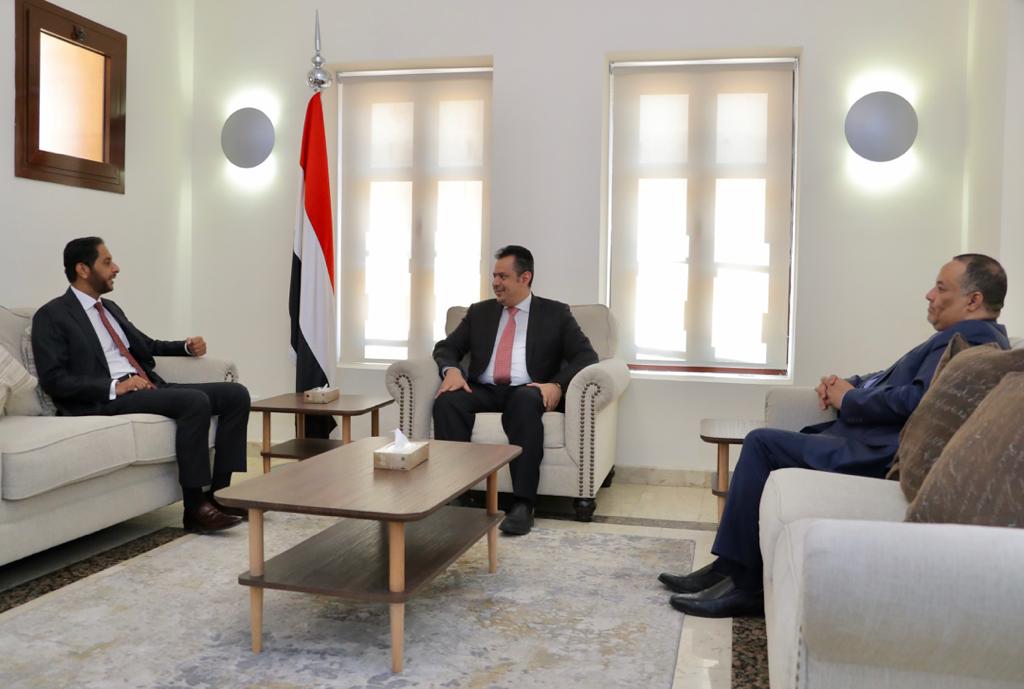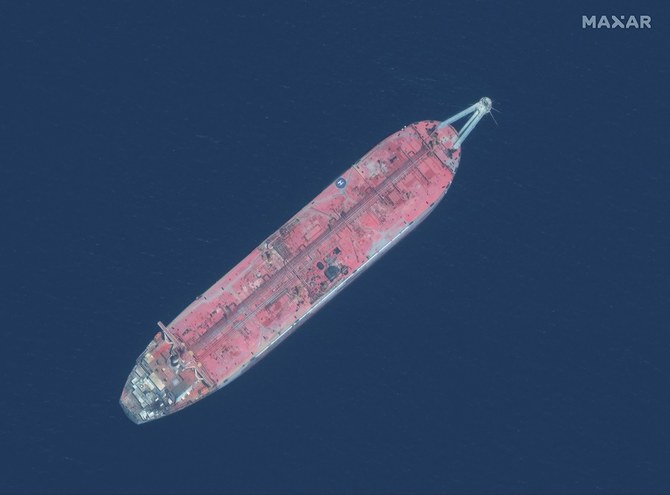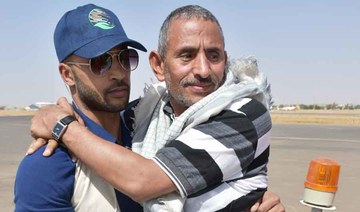DUBAI: Top officials from Yemen and Djibouti have met to discuss coordinated efforts to protect the security of the Red Sea and the Bab al-Mandab strait, including the future of the Safer tanker, currently held by the Houthi militia, state news agency Saba has reported.
Yemeni Prime Minister Ma’een Abdulmalik and Djibouti’s ambassador to Saudi Arabia Dhiya'addin Bamakhrama, spoke on Tuesday, expressing concerns over the looming environmental threat posed by the decaying Safer tanker.
And they expressed their concern over the lack of cooperation displayed by the Houthis, who have rejected the United Nations’ continued requests to be granted access to the ship and drain the cargo of oil.

Yemeni Prime Minister Ma’een Abdulmalik and Djibouti’s ambassador to Saudi Arabia Dhiya'addin Bamakhrama spoke on Tuesday. (Saba New)
They spoke about securing the international maritime navigation on these waters, fighting terrorism and facing security challenges across the Arab region.
Abdulmalik said his government welcomed all solutions to avoid looming environmental disaster, highlighting his keenness to coordinate efforts with Djibouti to maintain the security of the Red Sea and Baba al-Mandab, boosting relations between the two countries and enabling the continued flow of international trade through the area.
Expressing his full support to the Yemeni government in defeating the Houthis, Djibouti’s Bamakhrama acknowledged Yemen’s eagerness to solve the decaying oil tanker issue, and its efforts to accelerate the implementation of the Riyadh Agreement.
























